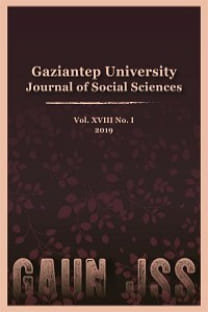İstihdam İlişkilerinin Taşeronlaşmış Formları ve “Aracı” Aktörleri: İnşaat Sektöründe Ustabaşılar
İstihdam koşullarının ve ilişkilerinin esnek ve güvencesiz yapısının, taşeronluk stratejisi ile birleşmesi şirketlere, serbest piyasa koşullarında rekabet güçlerini koruma imkânı yaratırken, işgücü açısından günden güne artan bir biçimde kuralsız, geçici ve istikrarsız çalışma koşullarını gündeme getirmektedir. İşgücünü kendi içinde parçalayan, bireyselleştiren ve yalnız kılan bir strateji olarak taşeronluk, aynı zamanda çalışma koşullarının sermaye açısından daha fazla yönetilebilir olmasını ifade etmektedir. Bu çalışmada, işgücü piyasasında, özellikle inşaat sektöründe ustabaşı olarak tanımlanan aracı kişilerin konumuna yoğunlaşarak, istihdam ilişkilerinin hangi stratejilerle giderek istikrarsız, belirsiz ve geçici kılındığının tartışması yapılmaktadır. Sermayenin, küresel ölçekteki kendini sürekli üretme çabasının işgücü üzerindeki etkileri ele alınırken, söz konusu çabaların, aracı aktörleri nasıl yarattığı ve aracı aktörler vasıtasıyla işgücünün nasıl kâr ve verimlilik aracına dönüştürüldüğün analizi yapılmaktadır. Aynı zamanda aracı aktörlerin, istihdam ilişkilerinde yeni tahakküm biçimlerini ve güç ilişkilerini belirgin kılan işlevi irdelenmektedir. Çalışma, ustabaşılarla yapılan “derinlemesine görüşme tekniği” ile sağlanan veriler üzerinden tartışılmaktadır
Anahtar Kelimeler:
Taşeronluk, Ustabaşı, Güvencesizlik, İstikrarsızlık, Geçicilik
Subcontracted Forms and “Intermediary” Agents of Employment Relationships: Foremen in the Construction Sector
Integration of flexible and precarious structure of employment conditions and relations with subcontracting strategies enables companies to conserve their competitive power in one sense; it also introduces the conditions, which are increasingly irregulated, temporal and destabilized, with regards to the labour power. On the other hand subcontracting, as a strategy of fragmenting, individualizing and isolating labour power in itself means that working conditions have been becoming more manageable in terms of capital. In this study, focusing on the positions of intermediary persons, defined as foremen in the labour market, especially in the construction sector, the strategies with which employment relationships become increasingly unsteady, indefinite and temporal are discussed. On the one hand, depending on the efforts of capital to reproduce itself on a global scale, the effects of capital on labour power are considered on the other, how these efforts produce the intermediary agents and through them how the labour power is instrumentilized as a tool of profit and productivity are analyzed. And the fabrication of the intermediary agents, which make the new forms of domination in employment relationships visible, is studied. The study is discussed through data gathered from in-depth interviews with subcontractors
Keywords:
Subcontracting, Foreman, Precarity, Instability, Temporality,
- ISSN: 1303-0094
- Yayın Aralığı: Yılda 4 Sayı
- Başlangıç: 1991
- Yayıncı: Gaziantep Üniv. Sosyal Bilimler Enst.
Sayıdaki Diğer Makaleler
Mobil Pazarlama: Turizmde Artırılmış Gerçeklik Kullanımı
Ali Ekber GÜLERSOY, Özlem GÜLERSOY
Liderlik Hangi Sıfatları, Nasıl Alıyor? Liderlik Konulu Makalelerin İncelenmesi
Felder-Soloman Öğrenme Stili Ölçeği’nin Öğretmen Adayları İçin Yapısal Geçerliği
Çiğdem Suzan ÇARDAK, Kıymet SELVİ
İnci Gibi Dişler’de Irk Sorunu
Mobile Marketing: Usage of Augmented Reality in Tourism
Yunanistan Borç Krizinin Nedenleri Ve Sonuçları: Yapay Sinir Ağları ile Bir Analiz
İstihdam İlişkilerinin Taşeronlaşmış Formları ve “Aracı” Aktörleri: İnşaat Sektöründe Ustabaşılar
Amerikan Viktoryanizminde Çocuk İhmali Üzerine Bir Belge: Henry James’in “The Pupil” Adlı Öyküsü
